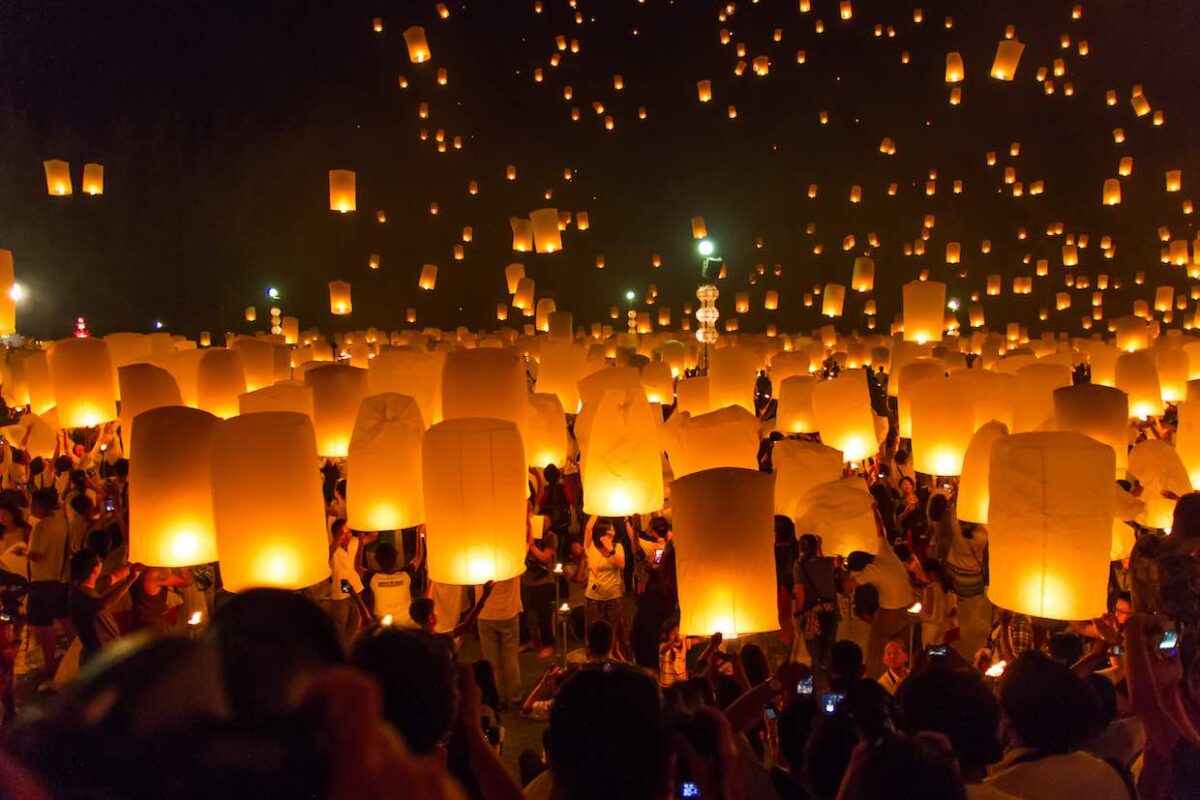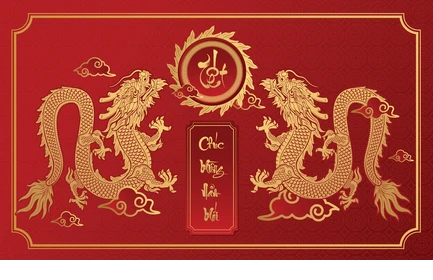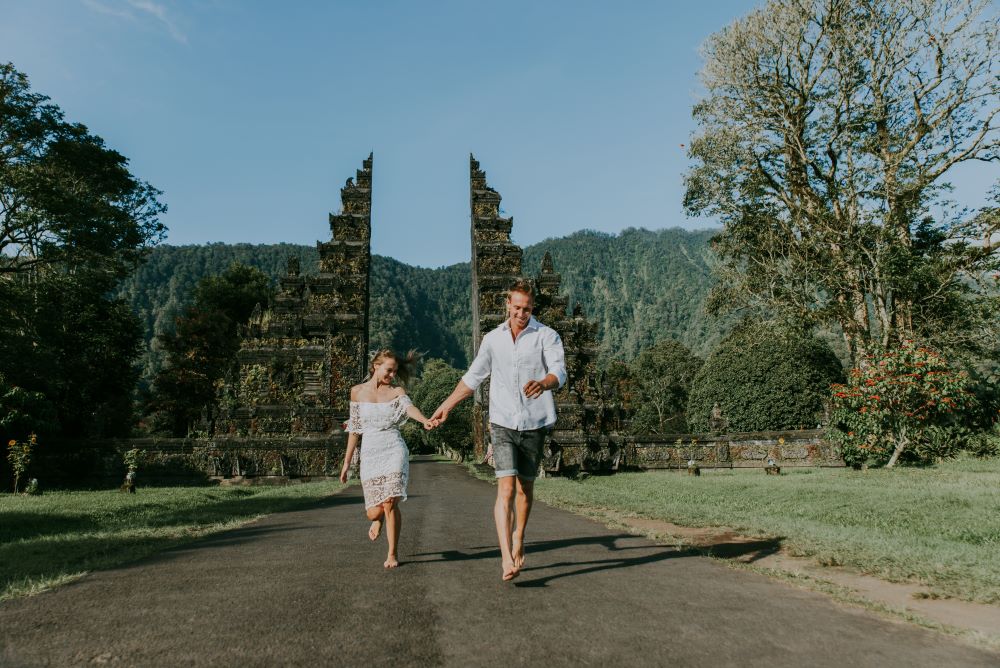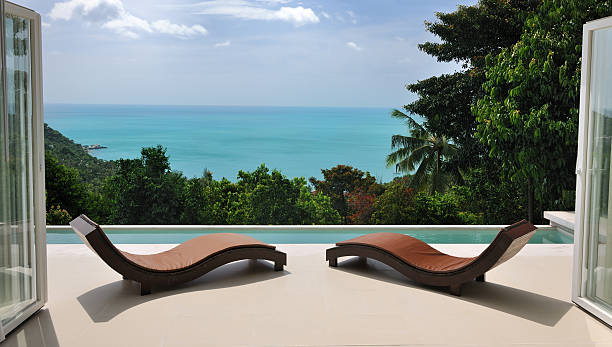Holidays
Thailand National Public Holidays and Local Cultural Festivals
National Public Holidays to Consider When Planning a Trip to Thailand

New Year’s Day – 01 January
This is the first of the national public holidays in Thailand. Celebrations include fireworks, parades, parties, and feasts. On this day, many Thais will visit temples and pray for a prosperous future.
Makha Bucha Day – February – March
This is one of three important Buddhist holidays in all of Thailand. ‘Bucha’ means ‘to venerate or honour’ in Thai and as such it’s recognised as a day where Thai aim to do only good things. Purifying the mind through the giving of a variety of gifts and participating with the local communities in meditation and special observances. On this day, Buddhists will gather in temples to listen to sermons from monks. The day is dedicated to honouring the teachings of the Buddha. It’s also worth noting during your Thailand travel plans, that Bucha day typically falls on the full moon of the third lunar month of the year. This could take place in February or March and varies each year.
Chakri Day – 06 April
Chakri Day is a national holiday that celebrates the founding of the Chakri Dynasty. It is celebrated on April 6th and is marked with parades, performances, and street fairs. This offers a unique glimpse into traditional culture during your holiday to Thailand.
Songkran (Thai New Year) – 13 -15 April
The next big holiday celebrated is Songkran, otherwise known as the Thai New Year, which takes place in April each year. Unlike other new year celebrations, Songkran is celebrated with a national water fight and usually marks the end of the dry season.
Labour Day – 01 May
Labour Day is celebrated on May 1st in Thailand. It is a public holiday that honours the hard work of the Thai people. Many locals will get together for barbecues and picnics to celebrate this national holiday.
Visakha Bucha Day – 04 May (can vary each year)
This day is another important Buddhist holiday. Asarnha Bucha Day marks the start of the three-month Rains Retreat for Buddhist monks. It falls on the full moon of the sixth lunar month and is marked by candlelight processions and offerings to the Buddha. It marks the birth, enlightenment, and death of the Lord Buddha.
Coronation Day – 05 May
Thailand also honoured HM The King Bhumibol Adulyadej, King Rama IX, on Coronation Day, which takes place in May each year. This is a day to commemorate the coronation of the king and is typically marked with a ceremony in Bangkok.
Mid-Year Bank Holiday
The Mid Year Bank Holiday in July is typically used to enhance productivity and is a great opportunity to travel to some of Thailand’s beautiful destinations.
Asarnha Bucha Day – August
This is the last Buddhist holiday of the year that falls on the full moon of the eighth lunar month. On this day, Buddhists will gather in temples to listen to sermons from monks and make offerings to the Buddha.
HM The Queen’s Birthday – 12 August
This is celebrated on August 12th and is a national holiday. On this day, many Thais will show their respect and gratitude to the queen by offering gifts and throwing parties.
Chulalongkorn Day – 23 October
Chulalongkorn Day in October celebrates the life of the highly respected King Chulalongkorn and his many accomplishments. It falls on October 23rd and is marked by parades, performances, and other festivities.
HM The King’s Birthday – 05 December
A national holiday that celebrates the birthday of King Rama IX. It falls on December 5th and is marked by parades, performances, and other festivities.
Constitution Day – 10 December
A national holiday that celebrates the adoption of the Thai constitution in 1932. It falls on December 10th and is marked by parades, performances, and street fairs.
New Year’s Eve – 31 December
The last of the national public holidays in Thailand. Celebrations include fireworks, parades, parties, and feasts. On this day, many Thais will visit temples and pray for a prosperous future.
Local Festivals
Yi Peng Lantern Festival
The Yi Peng Lantern Festival is perhaps the main highlight and may a festival you wish to consider in your Thailand travel plans. This festival occurs during the full moon of the 12th month of the traditional Thai lunar calendar, usually in November. Participants release floating lanterns into the air, symbolising the letting go of all negative feelings or possible obstacles in their lives.
Phi Ta Khon Ghost Festival
The Phi Ta Khon Ghost Festival is another one of Thailand’s unique cultural offerings that you can experience during your holiday to Thailand. This festival celebrates the legendary origins of Dan Sai, a small town located in the Loei Province of Thailand. According to local legend, a group of monks came together to create a spirit from an assortment of supernatural items which subsequently took on a life of its own. The festival has been celebrated since time immemorial for the purpose of offering respect to ancestors.
Bun Bang Fai Rocket Festival
The Bun Bang Fai Rocket Festival is a competition of rocket-making held annually in Yasothon Province, northeast of Bangkok. The goal of the competition is to create the most powerful rocket, so may be a festival you wish to consider when planning a trip to Thailand. The festival is usually held over the course of the recent full moon in May. This is a traditional ceremony that is said to bring rainfall to newly harvested crops, and to bring abundance and prosperity during the new year.
Surin Elephant Festival
Held annually on the first weekend of November. Participants from all over the region gather to pay respect to the mighty elephant and enjoy its majestic presence. The event showcases Thai culture and traditional arts such as Elephant performances, Elephant parades, and Buddhist Meditation rituals. This festival is an excellent opportunity to foster tourism in the region.
Wing Kwai (water buffalo racing festival)
The festival is held in September in Nong Khai, which lies on the Laos border. Competitors race their buffalo against each other to win prizes and acclaim. The festival is accompanied by food stalls and traditional Thai dances to provide a cultural touch. This interesting festival has become part of the local culture and is also popular among tourists.
Lopburi Monkey Banquet (food festival)
This food festival is unique in that it is held mainly for the enjoyment of hundreds of monkeys that are present in the city. Each November, local businesses provide food to be consumed by the monkeys, such as fresh fruits and sweet pastries. The festival is also accompanied by traditional Thai music, giving visitors an opportunity to experience the traditional culture of Thailand.
Mekong Naga Fireballs
The festival takes place every November in Nong Khai Province in northeast Thailand. This event, which has been occurring for hundreds of years, centres around the unexplained phenomenon of the surging fireball-like occurrences that happen in the Mekong River. Scientists have observed the phenomenon and their research suggests that the cause of this is an unusually concentrated amount of methane gas. Whatever the cause, this incredible spectacle draws thousands of visitors each year.
With so many interesting national holidays and festivals to observe, it’s clear to see why so many tourists wish to be a part of Thailand unique traditions and customs that are deeply important to the locals and tourist participation and enjoyment is encouraged greatly by the nation of smiles.
Important Travel Information for Thailand
. Visa and Entry Requirements:
UK travellers visiting Thailand for tourism purposes are granted a visa exemption for stays up to 30 days when entering by air and up to 15 days when entering by land. If you plan to stay longer or for other purposes such as work or study, you may need to apply for a visa in advance. Various visa types are available, including tourist visas and non-immigrant visas. Application procedures depend on the type of visa and can be completed online or through the Thai Embassy or Consulate in the UK. Ensure your passport has at least six months’ validity beyond your intended stay in Thailand.
2. Passport Validity:
Your passport should be valid for at least six months beyond your planned departure date from Thailand. If your passport is nearing expiration, consider renewing it before your trip through the UK Passport Office, with expedited services available if necessary.
3. Customs and Immigration:
Upon arrival in Thailand, follow customs regulations, declare any items of significance, and be aware of duty-free allowances. Immigration procedures typically involve presenting your passport, completed arrival/departure card, and proof of onward travel or accommodation.
4. Currency and Exchange Rates:
The currency used in Thailand is the Thai Baht (THB). Currency exchange services are widely available at banks, exchange counters, and hotels. It’s advisable to exchange currency at official outlets to avoid scams or unfavourable rates. Be aware of potential fees associated with currency exchange and consider using local ATMs for convenience.
5. Banking and ATMs:
Accessing banking services and ATMs in Thailand is convenient, especially in urban areas and tourist destinations. Major credit and debit cards are widely accepted but inform your bank of your travel plans to avoid any issues. Be aware of transaction fees and currency conversion charges that may apply.
6. Travel Insurance:
Travel insurance coverage is essential for medical emergencies, trip cancellations, and unforeseen circumstances during your stay in Thailand. Reputable insurance providers such as AXA, Allianz, or World Nomads offer comprehensive policies tailored to travellers’ needs.
7. Health and Vaccinations:
Recommended vaccinations for Thailand include hepatitis A, typhoid, and tetanus. Depending on your travel plans, consider vaccinations for diseases like hepatitis B, rabies, and Japanese encephalitis. Medical facilities in Thailand vary in quality, with better facilities found in major cities and tourist areas. Carry any necessary prescription medications and ensure you have adequate travel insurance coverage.
8. Safety and Security:
Thailand is generally safe for travellers, but exercise caution and remain vigilant, especially in crowded areas and tourist hotspots. Be wary of scams, avoid displaying valuables, and safeguard your belongings to deter theft. We strongly advise checking the latest travel guidance for Thailand on the government website prior to travel. You can also sign up to receive email notifications should the advice change.
9. Emergency Contacts:
In case of emergencies, dial 191 for police, 1669 for ambulance services, and 199 for fire emergencies. Keep the contact information for the nearest British Embassy or Consulate in Thailand handy.
10. Language and Communication:
The official language of Thailand is Thai, but English is widely spoken, especially in tourist areas. Learning basic Thai phrases such as greetings and expressions can enhance your travel experience. Consider using translation apps like Google Translate for communication assistance.
11. Transportation Options:
Thailand offers various transportation options including domestic flights, trains, buses, taxis, tuk-tuks, and motorbike rentals. Major airports like Suvarnabhumi Airport in Bangkok serve as international hubs with direct flights from cities worldwide including London, New York, and Sydney.
12. Public Transportation:
Public transportation in Thailand’s major cities includes buses, BTS Skytrain, MRT (Mass Rapid Transit), and taxis. Fares are affordable, and prepaid travel cards like the Rabbit Card offer convenience for frequent travellers.
13. Driving and Car Rentals:
Driving in Thailand can be challenging due to traffic congestion, road conditions, and local driving habits. International driving permits are required, and rental cars are available from reputable agencies. Ensure you have adequate insurance coverage and familiarize yourself with local driving regulations.
14. Accommodation Types:
Accommodation options in Thailand cater to various budgets and preferences, ranging from luxury hotels and resorts to budget hostels and guesthouses. Consider staying in diverse areas such as bustling city centres, tranquil beach resorts, or traditional Thai villages for a unique experience.
15. Booking Platforms:
Use reputable booking platforms like Booking.com, Agoda, or Airbnb to secure accommodations in Thailand. Choosing specialist travel agencies and tour operators is ideal as they can help you to plan your ideal Thailand itinerary within your budget and be on hand to support you throughout your journey should any issues arise. Direct flights to Thailand are available from major cities worldwide, with Bangkok serving as the primary entry point for international travellers.
16. Local Transportation Apps:
Download transportation apps like Grab and Gojek for convenient travel within Thailand’s cities. Google Maps also provides reliable navigation assistance for public transportation.
17. Weather and Climate:
Thailand has a tropical climate with three distinct seasons: hot season (March to May), rainy season (June to October), and cool season (November to February). Plan your visit accordingly but be prepared for occasional rainfall even during the dry season. The best time to travel to Thailand largely depends on your preferences and the specific experiences you’re seeking. However, usually the most favourable time to visit Thailand is during the dry season, which typically runs from November to April.
18. Packing Essentials:
When travelling to Thailand, pack lightweight, breathable clothing suitable for hot and humid weather. Essentials include sunscreen, insect repellent, comfortable walking shoes, and a reusable water bottle. Respectful attire is required when visiting temples or religious sites.
19. Voltage and Power Outlets:
Thailand uses the British three-pin plug (Type G) with a standard voltage of 220V. Bring suitable adapters and voltage converters for your electronic devices.
20. Internet and Wi-Fi:
Internet access and Wi-Fi hotspots are widely available in Thailand, including free Wi-Fi at hotels, cafes, and public spaces. Consider purchasing a local SIM card for data access or relying on free Wi-Fi networks during your stay.







